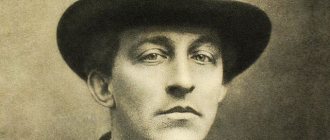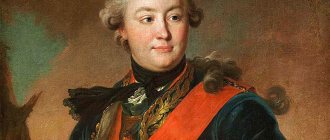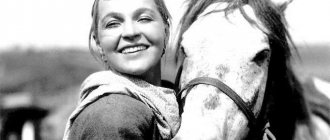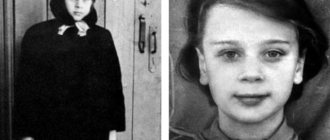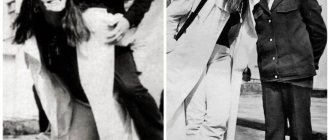Childhood and youth
Grigory Mormonenko (the director's real name) was born on January 23, 1903 in Yekaterinburg. Information about the family of the future actor and director varies. There is a version that Gregory’s father worked as a laborer, other sources claim that Alexandrov is the son of a hotel owner and grew up in luxury.
Grigory Alexandrov in his youth
It is known for certain that Grigory began working in the theater at the age of 12. Having started his career at the opera house as a laborer, Alexandrov climbed the career ladder to the position of assistant director. In parallel with the exhausting service, the young man graduated from a music school and courses for directors of the Workers' and Peasants' Theater at Gubnaraz.
Movies
The move to Moscow took place thanks to the actors of the art theater who came to Yekaterinburg on tour. Alexandrov was so impressed by the work of his colleagues that he went to the capital to improve his skills.
In 1921, Gregory was accepted into the First Workers' Theater. In the new team, the young man meets Sergei Eisenstein, a director whom Alexandrov will help create theatrical performances and films “Strike” and “Battleship Potemkin”.
Grigory Alexandrov in the film “Battleship Potemkin”
Grigory, who has set himself the goal of constantly improving in his profession, goes to Hollywood. The official reason for the business trip was to promote Soviet cinema, but Alexandrov did not miss the opportunity to meet legendary artists, including Charlie Chaplin.
After returning from the trip, the director's biography changes dramatically. The close creative tandem with Eisenstein (so close that obscene rumors circulated among filmmakers) is breaking up. The reason is that Gregory wanted more creative freedom. In addition, the director received an offer from Stalin to make a film about the revolution.
Film by Grigory Alexandrov “Jolly Guys”
The film was called “The International” and was released in cinemas with noticeable success. The next order from the government was the comedy “Jolly Fellows,” during which the director met Lyubov Orlova. After the film was released, it was awarded a special prize at the Venice Film Festival.
However, Alexandrov owes the success of the film to Maxim Gorky. The comedy created by the director did not receive approval from the People's Commissariat of Education and had to be archived. And only the influence of the playwright, who insisted that Stalin watch the film, saved the matter. An influential politician approved of the comedy, despite the lack of party propaganda.
Film by Grigory Alexandrov “Circus”
The film “Circus” helped Grigory consolidate his success with the Soviet people and government officials. Initially, the authors of the script were Ilya Ilf and Evgeny Petrov. But Alexandrov, dissatisfied with the text, reworked the idea so much that the writers refused authorship. To please Stalin, the director noticeably strengthened the storyline related to the ideology of the Soviet man.
Grigory spent the first years of the Great Patriotic War in Alma-Ata (now Almaty), where all Mosfilm employees and their families were transferred. But already in 1943 the director returned to the capital. A new position awaited the man in Moscow.
Film by Grigory Alexandrov “Volga, Volga”
From the post of an average director, Alexandrov moves to the chair of the head of a film studio. From this moment on, Grigory Vasilyevich practically does not make films, devoting more time to organizational issues.
In 1951, Alexandrov was offered a teaching position at VGIK. The man taught a course in directing for 6 years, while simultaneously studying new scripts and participating in international film competitions as a guest star.
Grigory Alexandrov and all the most interesting things from his life
The name of the outstanding Soviet director and screenwriter went down in the history of world cinema as a classic of pre-war comedy. “Merry Guys”, “Volga-Volga”, “Circus” may have embellished reality, but they invariably gave positive emotions.
1. The real name of Grigory Vasilyevich is not Alexandrov at all, but Mormonenko. He was born in 1903 in Yekaterinburg, in the family of a miner. From childhood I learned the severity of physical labor. In 1912, the boy worked in the city theater as a delivery boy, a props assistant, and a lighting assistant.
The building of the Yekaterinburg Theater There was a catastrophic lack of money in the family, and the father dreamed that his children would become successful people and receive a good education. And only the October Revolution allowed ordinary youth to learn. In 1917 he graduated from the Yekaterinburg Music School. And when courses for directors of the workers' and peasants' theater opened in the city, Grigory, who fell in love with the stage while still in the wings, did not hesitate to enroll there. Fate brought him together with the same rootless boy Ivan Pyryev, with whom he revived amateur artistic activities in the Cheka club after the expulsion of General Kolchak. Upon completion of the course, Gregory was sent to lead the front-line theater.
As Grigory Vasilyevich later wrote in his memoirs: “In this theater, which was rushing along the roads of the Civil War, I had the opportunity to carry out my first directorial works. In those days, everything was very simple: they wrote a play at night, staged it during the day, and performed the play in the evening.” Returning to Yekaterinburg in 1920, Grigory and Pyryev organized a children's theater. But with a huge thirst for activity, the friends did not have enough education, little knowledge of classical literature, but most importantly, the desire to improve, to move forward, drawing others along with them, was present.
2. Like all the youth of that time, Grigory and Ivan dreamed of a truly popular revolutionary theater, and when KHLAM (a club that united artists, writers, performers and musicians) arose in Yekaterinburg, friends became its regulars, gaining fame, not always positive, We tried to write it ourselves. And once they staged a truly revolutionary play by V.V. Mayakovsky's "Mystery Bouffe" (directed by our humble servant Grigory Vasilyevich). The performance was met with disapproval by critics, but its participants became recognizable people in the city. And when a theater department was organized in the provincial government of Yekaterinburg, the future classic of cinema received the position of instructor.
3. The fateful tour of the Moscow Art Theater troupe determined the entire future life of Pyryev and Mormonenko. They decided to study theater art professionally. Arriving in the capital, the friends could not decide on a theater for a long time; there were such an incredible number of them. “We rushed among many different “trends” and “directions”, took entrance exams wherever they were announced: at the Chamber Theater, at the Theater of Revolution, at the 1st studio of the Art Theater, at the 2nd studio, at the Griboedov studio, to the Pushkin Studio, to the Polenov Studio... Having seen the play “The Mexican” at the Proletkult theater, we finally made our final choice. True, he still had to pass the exam. In the end, we achieved our goal. Out of 600 applicants, six were selected. Pyryev and I are among them.”
4. In this theater, Gregory met Sergei Einzestein, who amazed the young man with his encyclopedic knowledge and fluency in English, French and German. In 1924, Grigory became an assistant director for the historical-revolutionary film “Strike”, in 1925 for “Battleship Potemkin”, and in 1929 for the epic propaganda film “Old and New”. By the way, in the drama “Strike” Alexandrov played the role of a master, and in the war film “Battleship Potemkin” he played Lieutenant Gilyarovsky.
In 1929, Grigory and Sergei left for Hollywood at the invitation of the American film giant Paramount. At that time, Hollywood was widely celebrating its 30th anniversary. The friends visited Walt Disney and met Charlie Chaplin. In 1930, their path led to Mexico, where Alexandrov tried his hand at directing, filming the film “Long live Mexico!” (finally formed only in 1979). And upon returning to the USSR in 1932, at the order of the leader, he filmed “The Internationale,” glorifying Stalin and his great deeds.
Grigory Alexandrov (left) and Sergei Eisenstein (right) in States 5. In 1934, Alexandrov directed “Jolly Fellows.” This was the first Soviet sound film comedy and a dream come true for the director himself, who combined outright hyperbolism, grotesquery, slapstick, and lyricism in this genre. And the main leitmotif of the picture was the idea that the Soviet government opened all the paths to great art for talents from the people. At the Venice International Film Festival (1934), Alexandrov was awarded the Grand Prix for Best Director.
6. Grigory Alexandrov’s first wife was Olga Ivanova, soloist of the Blue Blouse ensemble. In 1925, the couple had a son, Douglas (Vasily), who followed in his father’s footsteps, graduating from the screenwriting department of VGIK, in 1952 he was accused of anti-Soviet activities, and spent a year in Butyrka prison. He died after a second heart attack in 1978. When he Grigory Vasilyevich returned from a business trip abroad, he found out that his wife had cheated on him with actor Boris Tenin... They broke up. The second wife of Grigory Vasilyevich was the star of Soviet cinema Lyubov Orlova, she starred in all of his films. There were no children in this marriage.
7. In 1936, viewers saw the musical comedy “The Circus” and greeted it with a bang. In 1937, the film received recognition in France, was awarded the Highest Prize at the International Exhibition in Paris, and in 1941, director Alexandrov, composer Isaac Dunaevsky and actress Lyubov Orlova were awarded the Stalin (State) Prize.
8. The comedy “Volga-Volga” (1938) created a real sensation, combining elements of jazz and stunt effects, ridiculing the bureaucratic style of management and the lack of culture hidden behind the mask of a respectable position: “I cannot deal with each balalaika separately”; “Knowing musical culture and personally knowing Comrade Schulbert...”; “Close the door!”; "Clear the deck!"; “Stop the disgrace!”
9. In 1940, the musical “The Shining Path” was released. “Having taken on the task of showing something new in Soviet reality, we strived to be technical innovators and enthusiasts. Our film was weak. We experienced many difficulties along the way, and there was not much light in the textile workshops where we had to film. Therefore, a technical technique that was new at that time was widely used: the background was filmed in slow motion in the workshop, and the machine on which Tanya Morozova worked was filmed in close-up in the studio against the background of a screen, rear projections were projections onto a translucent, transparent screen. It must be said that Lyubov Petrovna acted at the loom like a real weaver.”
10. During the Second World War, Grigory Alexandrov was engaged in newsreels, realizing himself as an ideological fighter, called upon with his art to inspire people, awaken hatred of fascism and great love for his native land. One of the first documentaries of 1941 was “Combat Film Collection No. 1”, on which many directors and cameramen worked on the roads of war, participating in partisan raids, and seeing blood and fire with their own eyes. This picture was successfully demonstrated both in the rear and on the front line. “The rifle and the camera took turns replacing each other. Mosfilm members often went out to build defensive structures, and then a shovel became our weapon.”
11. In 1943, Grigory Vasilyevich filmed the drama “One Family,” but the mass audience did not see it. The documentary tale about the war “Caspians” was published in 1944. This film combined chronicle and animation, puppets, and grotesquery.
Grigory Alexandrov and Lyubov Orlova on the set of the film “One Family” 12. After the Second World War, Alexandrov also shot the comedy “Spring” (1947), symbolizing the awakening of man to discovery, love, and a thirst for activity. And phrases from the movie have long become catchphrases. “Beauty is a terrible force!”; “Nikitina can’t bite a pencil! Let us show the viewer that Nikitina cherishes the pencil as an instrument of her production”; “What do you like most about me? “Living space!.. I wanted to say, little eyes!”; “And every stump on a spring day dreams of becoming a birch tree again”; “Hello, ambulance? Help... ambulance... Delirium tremens... Delirium tremens... Who is sick? I’m sick, Margarit Lvovich... sorry, Lev Margaritych... Leave immediately..."; “And I almost loved this nonentity!”; “Medium plump, sexy number four!”; “Wherever you work, just don’t work!”; “Captain, captain, pull yourself up! Only the brave DO the seas submit!”; “Experiments are experiments, but I always have time to get to the crematorium!”; “I got burned... like a Swede near Poltava...”
For the originality of the plot of "Spring", combining a comedy of masks and a sitcom, director's improvisations and cameramanship, excellent music, the film was awarded the VII Prize of the Venice Film Festival (1947). 13. In the political film “Meeting on the Elbe” (1949), Shostakovich’s music was heard, which later became the anthem of the world; it was heard at all congresses and in the UN building. And the film itself - about the triumph of victory over fascism - became the leader in Soviet film distribution. In 1950, Lyubov Orlova and Grigory Alexandrov received the Stalin Prize for this film.
14. After this crowning picture, Grigory Vasilyevich also directed the biographical drama “Composer Glinka” (1952), the documentary “The Great Farewell” (1953), the musical “Man to Man...” (1958), the comedy “Russian Souvenir” (1960), the series historical and biographical films “Lenin before October” (1965) and “Lenin in Switzerland” (1965), the spy film “The Starling and the Lyre” (1974) and the documentary “Lyubov Orlova” (1983). The star of the Soviet screen was no longer alive at that time, she died in 1975. 15. After the death of Lyubov Orlova and his son Douglas from his first marriage, Alexandrov married for the third time to his daughter-in-law Galina Krylova, a fashion model at the Moscow Model House. The grandson, named after his grandfather, was already 24 at that time. He also linked his fate with cinema, graduating from the cinematography department of VGIK.
Grigory Alexandrov with his son and grandson Grigory Vasilyevich himself was seriously ill when he made a film about his great love in 1983. He died on December 16, 1983 from a kidney infection. Galina Krylova did not behave very decently, not allowing her husband to be buried in the grave of Lyubov Orlova on Novodevichy. He was buried in the same cemetery nearby.
Personal life
Alexandrov’s first wife was actress Olga Ivanova. The artist became famous thanks to her work in the pop group “Blue Blouse”. At the next performance, the girl noticed the admiring look of the young actor and fell in love. In 1925, the couple had a child - their son was named Douglas. The marriage broke up after Alexandrov's trip to America. While the director was on a business trip, Ivanova took a lover.
Grigory Alexandrov and Lyubov Orlova
Alexandrov’s second wife was the still unknown actress Lyubov Orlova. It was Gregory who made his wife a star, giving her the main roles in most of his own films. For both artists, marriage was the second in a row.
Grigory Alexandrov with his son and grandson
People around were surprised at the strange relationship. The couple slept in separate beds and communicated only through notes at home. Orlova insisted on such conditions for personal reasons. Envious people gossiped that the marriage was fictitious, but the diaries and notes of the spouses, preserved on their estate (as the director called the country house), confirm the opposite. Alexandrov lived with Orlova until his beloved’s death.
Unforgettable and inimitable Lyubov Orlova!
“...I will never be more than thirty-nine years old! Not for a single day!..” Lyubov ORLOVA
Orlova Lyubov Petrovna (1902-1975) “Having pricked herself on roses, Lyubov Petrovna received blood poisoning. It turned out that the thorns were saturated with poison. To save Orlova, Stalin sent a personal plane to England for the best doctors,” recall the actress’s relatives...
Military translator Ivan Lukashev says: “In the legendary film “The Cranes Are Flying” there is such a moment: an evacuated artist asks an official: “I really want to go for a ride!” Well, get a car, a fire truck, an ambulance, it doesn’t matter!” This episode is copied from a real case, the heroine of which was Lyubov Orlova. Lyubov Petrovna needed to find a friend in Leningrad - this was in 1943! And she called one marshal with a request to give her his personal plane. The marshal was indignant: “The war is on!” The blockade has not yet been lifted from Leningrad! Orlova paused, and then asked in an insinuating voice: “Should I call Comrade Stalin personally?” As a result, Orlova was provided with a Douglas military transport aircraft. And they also provided fighters for cover.
For her, Stalin's favorite actress, nothing was impossible. As for Stalin, perhaps he was not as close friends with any woman as he was with Orlova! After Nadezhda Alliluyeva shot herself in 1932, there was no permanent woman next to the leader. And he willingly spent time with Lyubov Petrovna. At her dacha she had a direct connection with the Kremlin. Previously, when there were no numbers in Moscow, communication was established through a switch. The telephone operators knew that Lyubov Orlova had to be connected to Stalin instantly at any time. Sometimes he talked to her for an hour, although he had business to do. And if he wanted to see her, he sent a car, and Lyubov Petrovna disappeared for a day or two. Nobody asked her afterwards what they were doing. Lyubov Petrovna, a lady by birth, lived as a lady all her life, as if for her there had never been any revolution or Soviet power...”
Lyubochka Orlova. 1916
Nonna Golikova says: “Lyubov Petrovna is the sister of my grandmother, Nonna Petrovna Orlova. Their father, as the family legend says, came from those same famous Counts Orlovs, and their mother from the old Sukhotin family, who were related to the Tolstoys. Sobinov, Korovin, Chaliapin visited their house... The latter, seeing little Lyuba at a children's party, said: “You will be a great actress!”
Lyubov Orlova with her mother. Photo 1940
Among the children who “ridden” Chaliapin, the tallest is Lyuba Orlova (photo from the site orlovamuseum.narod.ru)
Like many noble families, in 1917 they found themselves in an extremely difficult situation. Lyuba and Nonna’s father, my great-grandfather, never tired of repeating: “It’s good that I managed to lose three of our estates at cards!” Indeed, they survived only because there was nothing to take from their family. The Orlovs settled in quiet Voskresensk and got a cow. In their profiles, sisters Lyuba and Nonna began to write that they came from “the intelligentsia.” Every morning they transported milk in large and heavy cans to Moscow for sale. 15-year-old Lyuba’s hands hurt from physical work - then all her life she suffered with joints. When she became an actress, she tried to act while wearing gloves or asked her to sew a dress with such long sleeves that her hands were covered.
Even after becoming a movie star, Lyubov Petrovna continued to dance. Daily exercise with a teacher. 1939 Photo: RGAKFD Lyuba began her artistic career by entering the conservatory. True, I didn’t finish it - it was too difficult to combine classes with the need to help my family. She gave dance lessons, worked as a performer in cinemas... In the early 1920s, Orlova married Andrei Berzin, who held a position in the People's Commissariat of Agriculture. He had a huge apartment in Khokhlovsky Lane, and he gave Lyuba the opportunity to live there with her family and take care of herself: take vocal, dance, and acting lessons. But, alas, in 1929 Berzin was arrested. Orlova and her family were immediately evicted and moved to a communal apartment. By this time, Lyubov Petrovna became an actress of the Musical Theater under the direction of Nemirovich-Danchenko.
Lyubov Orlova and Mikhail Nemirovich Danchenko
Even then she attracted attention. Managed to look stunning! The same black dress served her for many years. Either she will sew on the collar, or change the length... Elegant, with a chiseled figure, with a soft, deep voice. At the same time, there was always a feeling of a core in her - indestructible and reliable.
In 1933, Lyubov Petrovna had a serious affair with a German citizen named Franz. Thanks to him, she got a car with a driver. Franz wanted to take Orlova to his homeland and promised to make her a movie star on a European scale. But having met Alexandrov, Lyubochka forgot to think about Franz. After “Jolly Fellows” and “Circus” Alexandrov said: “I have found my directorial happiness!” And not only the director’s – after all, Grigory and Lyuba got married.”
Soviet film actress Lyubov Orlova and film director Grigory Alexandrov, 1937
“It was Alexandrov who came up with the idea to dye Orlova blonde and brought her a hairdresser, who gave Lyubov Petrovna the look of a Hollywood film star,” says Ivan Lukashev. - After all, Alexandrov knew what a movie star should look like! I remember how he told me about his affair with the legend of American cinema Greta Garbo. This was during his internship in Hollywood. At the expense of the film studio, he, Eisenstein and Tisse rented a small villa to live in, but when Grisha managed to win the heart of the magnificent Greta, the comrades, out of delicacy, vacated the living space. And Alexandrov and his breathtaking lover lived in the villa together. True, the romance did not last long - the time had come for Alexandrov to return to the USSR. As a reminder of all this, Grigory Vasilyevich still has a photograph of Garbo with an inscription written in lipstick:
“To my only love Grigoriy. Hollywood 1930." But still, the main woman in his life was not she, but Lyuba Orlova, from whom Aleksandrov himself molded into a movie star no worse than Garbo.”
Film actress Lyubov Orlova in the film Russian Souvenir directed by Grigory Alexandrov.
“The fame and success of Alexandrov and Orlova grew from film to film,” Ivan Lukashev continues his story. “And they lived in full accordance with their superstar status.” They had a lot of money. They twice received the Stalin Prize of the first degree: Lyubov Petrovna - as an actress and Grigory Vasilyevich - as a director. The first - for the films "Circus" and "Volga-Volga", and the second - for the film "Meeting on the Elbe". But each such award amounted to 100 thousand rubles! For comparison, the average salary in the country was then 500 rubles, Stakhanovites were paid a thousand.
Orlova and Alexandrov represented Soviet cinema in many countries around the world. "Star" spouses on the square in front of the Milan Cathedral. While the rest of the country’s population had no idea what was happening abroad, Orlova and Alexandrov had permanently valid foreign passports. They easily flew to France, then to Switzerland, or somewhere else. Alexandrov received such a passport back in the late twenties, when he was interning in Hollywood. And Lyubov Petrovna began traveling while working on the film “Spring” - after all, the picture was shot at the Czechoslovak film studio “Barrandov”. Then the couple began to travel abroad regularly.
The majority of the country's population had no idea what was behind the Iron Curtain, but Orlova and Aleksandrov had permanent international passports. During a trip to Venice Photo: MOSFILM-INFO
It was rumored that Orlova and Alexandrov were so easily released abroad because they were KGB agents. In fact, as Soviet intelligence officer Pavel Sudoplatov writes in his memoirs, these were called differently: “agents of influence.” Using the special trust of the authorities, such people carried out orders to introduce Soviet spies among the European elite. It was impossible to get there without recommendations, and Orlova and Alexandrov, thanks to their friendship with Charlie Chaplin, were considered their own there.
Lyubov Orlova, Grigory Alexandrov and Charlie Chaplin, 1960s
They often stayed with Chaplin for the whole summer - he even paid for Orlova’s plastic surgery. However, she and Alexandrov also had their own accounts in foreign banks. Of course, secretly from the Soviet leadership, they were helped in these matters by the same Chaplin, who became the guarantor of their contributions. Alexandrov was very savvy in financial matters and wanted to have guarantees for any turn of events. For the same reasons, he also bought an apartment in France - in Paris, near the Bois de Boulogne.
Grigory Alexandrov and Lyubov Orlova Well, in their homeland, Alexandrov and Orlova had a house and a hectare of land in a prestigious village in Vnukovo, where the Moscow elite settled in the 30s. The house was built according to Alexandrov's design. He took as a model the villa where he once lived in Hollywood. A Swedish architect brought this idea to life, and the house turned out to be unusual. For example, there was a cinema hall: in the living room one wall was plastered and left empty, creating a movie screen. A film projector was placed on the piano, and films were shown in the house in the evenings. There was also a dance floor in the house: it was arranged on the roof of the terrace, and there was even a small stage for an orchestra for five people. True, almost no one ever danced there, because Orlova did not like guests.
clickable Country house of Orlova and Alexandrov in Vnukovo, Moscow region, 40s. The owners are on the upper terrace.
Lyubov Orlova with her husband at their dacha near Moscow
At their dacha, everything was arranged for only two people: a small sofa, two armchairs, a small table. There are no guest rooms, just two bedrooms upstairs, each with its own fireplace. But Alexandrov’s only son, Douglas, when he lived in Vnukovo, was given a cramped closet, which was originally planned as a servant’s room.
Grigory Alexandrov with his son Douglas and grandson Grigory Jr.
Even when they came to Alexandrov on business, to discuss the script, Lyubov Petrovna could come in and say: “It’s time for Grigory Vasilyevich to have dinner!” And this was not an invitation to the guest to the table, but a signal that it was time to leave. Alexandrov recalled: “Lyubovka dispersed all the companies, so I didn’t have any friends in the house...” However, relatives of Lyubov Petrovna herself were in the house.”
And again Nonna Golikova takes the floor: “Next to her plot in Vnukovo, Lyuba procured another one - for her sister, my grandmother. And from then on, I began to often visit Lyubov Petrovna and Grigory Vasilyevich. Their house was luxurious! A piano, a fireplace, cozy armchairs... One day, sinking into such an armchair, I lit a cigarette for the first time. They didn’t tell me anything - Lyubov Petrovna herself sometimes smoked. Moreover, expensive cigarettes imported from abroad. I know that they talk about Orlova, what a great housewife she was. This is partly a myth. For example, she absolutely did not know how to cook, she could not even break eggs. But she did needlework with pleasure - she sat for hours sewing some kind of patchwork quilt.”
After the film "Volga-Volga" Orlova became Stalin's favorite actress. Meanwhile, Beria dreamed of destroying both her and Alexandrov
“With all the obvious prosperity and special disposition of Stalin towards Lyubov Petrovna, the life of the spouses was still darkened by something, namely, fear! - Ivan Lukashev continues the story. “They knew that Beria, who did not tolerate people who had influence on the “master,” dreamed of destroying them. And indeed, one day a “black funnel” came for Grigory Vasilyevich. Lyubov Petrovna immediately rushed to call Stalin - that’s when the connection with the Kremlin came in handy! As a result, the car with Aleksandrov turned around before reaching Lubyanka. And although Stalin assured Orlova that he had personally ordered Beria to leave their family alone, Aleksandrov still did not feel protected. Just in case, he kept a “arrest suitcase” ready with the necessary things - in those years many people had such things. And indeed, the day came when I had to take this suitcase out of the pantry again...
It happened like this: Grigory Vasilyevich was taken at night, put in a car with curtained windows, and taken somewhere. Orlova failed to reach Stalin this time. The car drove into an underground garage, after which the director was dropped off and led along the corridor under escort. They took me into a room, and there were Stalin, Molotov, Beria... It turned out that this was the Kremlin. Stalin says: “You are corresponding with a foreigner in wartime. This is punishable by execution." Naturally, Alexandrov began to mentally say goodbye to life. But then Joseph Vissarionovich smiled and continued: “Don’t be afraid, I’m joking. Your friend Charlie Chaplin sent you a letter with opportunity. Here it is, read it." The US Secretary of State brought a letter from Chaplin to Alexandrov to the Union. These are the jokes...
Lyubov Orlova visiting Una and Charlie Chaplin. 1960 Photo: RGBI
Another time, Stalin made Grigory Vasilyevich turn cold at one Kremlin reception, where Aleksandrov and Orlova arrived after filming.
Tired Lyubov Petrovna did not look well, and Stalin noticed this: “Lyubochka, you look bad... Comrade Alexandrov! If you overload your wife with work like that, we will shoot you.”
“Anyone had to travel a lot around the country,” recalls Nonna Golikova. — She often gave two concerts a day. But such loads were contraindicated for her: Lyuba suffered from incurable Meniere’s disease, accompanied by attacks of dizziness, vomiting... This is a congenital disease of the vestibular system, when it sometimes becomes difficult for a person to even walk in a straight line. This condition was usually caused by bright light or simply a yellow-orange color.
As luck would have it, many respectable hotels in those days had red velvet curtains. In this case, Orlova’s administrator exchanged them for black curtains, which he specially carried with him. Lyubov Petrovna was embarrassed to ask the tour organizers about such things. I remember she said: “How can I dictate the color of the curtains to the hotel? They will say that these are my crazy whims!
They said about Orlova that she was a great housewife; there were legends about their cozy house in Vnukovo. But she didn’t know how to cook at all... 1955 Photo: RGBI
She had countless fans. Lyuba was tired of the intrusive attention and still always tried to smile, accepted the bouquets herself, and thanked her. And then one day on tour it turned into a real disaster for her! In 1952, a planned assassination attempt was made on Lyubov Petrovna. This happened in one of the border cities of Western Ukraine. At this time, anti-Soviet sentiments flourished there. Orlova was perceived as a symbol of Soviet cinema, and it was no secret that she was the leader’s favorite actress. To harm her meant to challenge Stalin personally... Having finished her performance, Lyubov Petrovna went out to bow to the audience. And among other bouquets, she was presented with an unusual one.
Lyuba herself later told us: “It stood out among the others, it was mainly composed of white roses, but in the middle there were absolutely black roses! I've never seen anything like this and was very surprised. Then I realized that it was a funeral bouquet...” The strange flowers were wrapped in paper, torn on one side. And Lyuba, taking them, immediately injected herself. That same evening, blood poisoning began - it turned out that the thorns of the roses were saturated with poison. Having learned about what had happened, Stalin ordered Orlova to be taken to the Kremlin hospital on Granovsky Street, and even sent his personal plane for the famous English professor, a specialist in the treatment of poisoning. Lyubov Petrovna was barely saved by giving her several blood transfusions. I remember how my mother and grandmother with worried faces were returning from the hospital, and Grigory Vasilyevich did not leave there at all!
Of course, they were looking for those responsible for the assassination attempt. Many people were arrested in that city, but, as far as I know, the person who gave Lyuba the poisoned flowers was never found. For the rest of her life, Lyuba was afraid to accept gifts from strangers. And when her car drove through the crowd, it actually lay on the floor! Just in case…"
“In general, the most golden time for Orlova and Alexandrov was under Stalin. But even after his death, no one oppressed them or deprived them of benefits.
It’s just that Lyubov Petrovna was already old; she couldn’t look as good on the screen as before. It was at her request that Alexandrov’s last film with her participation, “Starling and Lyra,” was put on the shelf. And she completely refused to film an autobiographical film about herself. There was only one reason - worries about age. Although she had great opportunities, she used the latest advances in cosmetology. For example, she made a magic mask, and for forty minutes her face became absolutely youthful. But these funds were not suitable for filming films, and Orlova took up work in the theater. She and I never talked about Stalin, about the debunking of his cult. This is a complex topic. Alexandrov, if he remembered Stalin, it was something good, and sometimes funny. For example, how on Budyonny’s 55th birthday the leader organized a “bachelor party” from the highest ranks of power, at which everyone sang and performed obscene ditties. When the “master” ordered, everyone had to drink, and a lot! If someone made an excuse: “I have a stomach ulcer,” after two weeks this person disappeared, he was arrested and could be shot. So people preferred not to refuse the glass from the hands of the leader.”
Lyubov Orlova with Faina Ranevskaya in a play at the Mossovet Theater Photo: MOSFILM-INFO
“Before meeting Lyubov Orlova, Grigory Vasilyevich had another wife, Olga,” recalls Ivan Lukashev. “It was she who gave birth to his only son, Douglas, whose son, Gregory, later became my friend. Why did Alexandrov choose such a strange name for his son? This came out because of one conversation between Grigory Vasilyevich and the American actor Douglas Fairbanks. When he was on a visit to the USSR, he laughed at the widespread
In the 20s in the Soviet Union, the manner of giving everything and everyone industrial names, he joked: “What will you, Grigory, name your son? Tractor? To which the wounded “Westerner” Alexandrov, a big fan of the Hollywood style, replied: “No, Douglas, in honor of you!” And he kept his word. But the star name did not bring an easy fate for Douglas Alexandrov.
A frequent guest of Alexandrov and Orlova was the poet James Patterson - the same black boy from “The Circus”
In 1929, Alexandrov, together with director Sergei Eisenstein and cameraman Eduard Tisse, went for an internship in Hollywood. This internship lasted for three years, during which time Olga found a replacement for Grigory Vasilyevich - actor Boris Tenin. He was an idol - a very handsome and charming man, who later became famous for his leading role in The Adventures of Schweik. At that time, Tenin was an even better player than Alexandrov, who was still just showing promise. In a word, having returned to the USSR, Grigory Vasilyevich got divorced. Douglas stayed with his mother. But, having married Tenin, Olga did not want to take care of her son and soon sent him to an orphanage. In this whole story, Douglas remained out of work and was of no use to anyone. Over time, Alexandrov, however, became interested in the fate of his son, introduced him to cinema - Douglas Alexandrov received the profession of a cinematographer and during the war he filmed newsreels on the front lines, worked for Konstantin Simonov himself. And one day his father gave him a role in his film “Meeting on the Elbe.” Orlova played an American spy there, and Douglas played an American officer. He really looked like an American - a bright, almost Hollywood appearance.
Photo taken by Alexandrov: “Morning Orlova.” In it, the actress is 60 years old, but how good she looks!
At first, Lyubov Orlova provided patronage to the young man. And when Douglas wanted to live separately from them, she herself found him a housekeeper, a simple woman Galina. Orlova always had housekeepers, this was in the order of things for her. So for her stepson, she found, on the basis of a recommendation, a hardworking woman who had previously worked for someone she knew. Who could have foreseen that Douglas would fall in love with Galina and want to marry her? But that's exactly what happened. Orlova was furious. Either the noble class feeling leaped up, or the status of a star made itself felt. In a word, she told Douglas: “If you want to live with servants, live! But then you won’t have anything in common with me!” The son rushed to his father, but from him he heard: “Lyubov Petrovna is absolutely right!” So Douglas lost support for many years, and even just communication with his father ... "
At home, on Glinishchevsky Lane.
“Some accuse Lyubov Petrovna of showing her stepson the door because of the wrong choice of his wife,” Nonna Golikova continues the topic. “But as far as I know, that wasn’t the case at all.” Lyubov Petrovna really refused to give up the house to Douglas, but this happened after he, taking advantage of his father and stepmother’s departure abroad, organized a riotous party in the house without permission. Although I promised not to invite guests! Of course, the young guys ruined some furniture, but most of all Lyubov Petrovna was outraged by the fact that her stepson broke his word. She herself, if she promised something, always fulfilled it. Douglas's family then hated Lyuba for many years and took revenge on her as best they could. It was they who, as soon as they received the inheritance, first of all took out the entire archive of Lyubov Orlova, along with bags of letters from fans who came to her from all over the country...
Grigory Alexandrov and Lyubov Orlova
Orlova died in 1975. On January 23, Lyuba called her husband from the hospital - by this time she was already seriously ill. That day, Alexandrov visited Lyuba, and barely had time to return home when the phone rang. He realized what this meant and rushed back to the hospital. When he ran into his wife’s room, Lyubov Petrovna only had the strength to say: “How long have you been?” - this was the only reproach for all their 42 years of marriage! After that, she lost consciousness and never came to her senses again. The actress was buried on January 29..."
Grigory Alexandrov and Lyubov Orlova
Ivan Lukashev recalls what happened next: “It cannot be said that Alexandrov did not participate in the fate of his “guilty” son. Back in the sixties, he hired him as an operator in the KGB. Douglas filmed secret operations, for example, how one spy was exchanged for another. He eventually died of heart failure in 1978. Leaving his wife, the same Galina, and a little son named after his grandfather Grisha.
True, they managed to improve relations with their father, because Douglas outlived Orlova by three years.
Grigory Alexandrov and Lyubov Orlova
After the death of his wife, and then his son, Grigory Vasilyevich felt lonely in the big house. It was then that he remembered his grandson and daughter-in-law and invited them to live with him. Galina surrounded Alexandrov with the same care as she did under Lyubov Petrovna. He took his medications on time again, slept on starched sheets, ate dinner on good dishes, with proper serving - everything was as he was used to. So all the old man could do was rest and watch his films with Orlova. While watching, he became animated and had fun like a child, told different stories from the filming, all you could hear from him was: “Lyubochka... Lyubochka...” Yes, he really loved her.
Grigory Alexandrov
And then Grigory Vasilyevich stunned everyone by marrying Galina. From the outside it looked really wild! After Lyubov Orlova - suddenly a new wife, and even his own daughter-in-law, who, moreover, was the reason for a many-year quarrel between Alexandrov and his son and is significantly younger than the almost 80-year-old director! In fact, there is nothing particularly scandalous or romantic in this story. Grigory Vasilyevich rightly feared that his grandson would not be able to inherit his property. The situation was further aggravated by the fact that next door to Alexandrovsky there was Leonid Utesov’s plot, with whom the director parted on rather tense terms after filming “Jolly Fellows.” They said that Utesov, by hook or by crook, wants to annex Alexandrov’s plot to his own... Grigory Alexandrov and Sophia Loren
In a word, marrying his son’s widow was a pragmatic step for Grigory Vasilyevich. But how Galina changed after that! If earlier she preferred a sporty style, now she began to wear dresses and diamonds by Lyubov Orlova. And I even learned to drive a car! According to her order, the plant assembled an improved Volga with genuine leather seats and a tinned body - supposedly for Grigory Vasilyevich, although it was Galina who drove it. I even remember what numbers the car had: 0033. Lyubov Orlova and Grigory Alexandrov, 1941, Vnukovo Well, Grisha... I remember he once whispered to me, pointing to a clay dish sculpted and painted by Pablo Picasso with his own hand especially for Alexandrov : “When grandfather dies, you and I will drink this dish for a week!” That's what he finally did. When Alexandrov died, Galina and Grisha became the owners of the huge inheritance, as planned. The grandson settled in his grandfather’s Moscow apartment on Pushkin Square, while Galina remained in the house in Vnukovo, little by little selling Orlova’s jewelry. On Pushkinskaya, Grisha began to gather bohemians - actors from nearby theaters.
Lyubov Orlova with a delegation of Soviet artists in France at a meeting with Pablo Picasso. 1954 Photo: RGBI
I remember how they fooled around. One day I came to see Grisha, and there were girls on the stairs - apparently and invisibly! It turns out that Alexandrov Jr. and Alexander Abdulov arranged an “audition at VGIK.” They introduced themselves as teachers, fooling provincial girls... They told me: “If you want, we will introduce you as a director! And then choose any one for yourself - they are ready to do anything to get into the movies!” I refused. And yet, in fairness, it must be said that these gatherings at Grisha’s were not a banal riot. In the apartment on Pushkinskaya, poems were read, intellectual debates were held, and if women were seduced, they were presented with armfuls of flowers and kneeling declarations of love... Everything happened mischievously and with talent.
From time to time Grisha came up with the idea of creating a museum in his grandfather’s apartment. It didn’t work out... Instead, the grandson gradually sold off all the relics kept in the house. Either a portrait of his grandfather, or Orlova’s service, or drawings by Fernand Léger - they were given away to art speculators for a bottle of cognac. Grisha, however, sold one of the last letters written by Chaplin (by the time it reached Alexandrov in Moscow, the great comedian died), Grisha sold it for more - for several thousand dollars...
When Grisha had a family, there was hope that the careless revelry would end. But here, what is most striking, Galina intervened. Just like Lyubov Petrovna had done in her time, she decided that her daughter-in-law was not worthy of her son. And she left the house unwanted with her little grandson. And for her son, Galina looked for a resident of Paris, Lyudmila, the daughter of the first wave of emigrants. Having gone to France, Grisha met her, then they got married. Since then, to Galina’s joy, Tolstoy’s great-granddaughters and Pushkin’s descendants began to appear in his circle. Only when news came from Moscow that his mother was seriously ill, Grisha could not come. As a result, Galina was buried by his first wife - the same one who survived from home. By the way, Galina was not allowed to be buried next to Alexandrov, as she wanted. Then Grisha sold everything, and together with Lyudmila they bought an apartment in Dubai. But Grisha did not have the chance to live in them - he died, a little short of his sixtieth birthday...
Now nothing remains of the huge inheritance of Alexandrov and Orlova: neither a city apartment, nor a dacha in Vnukovo - everything has long been sold and lived out. But the Alexandrov family still hasn’t dried up: Grishin’s eldest son, Vasily, lives in Russia from his first wife, former Bolshoi Theater ballerina Natasha Grishina. And in France - two younger from the second. So Grigory Vasilyevich Alexandrov has three great-grandchildren. As for Lyubov Orlova, she never wanted to have children and, as far as I know, she got rid of pregnancy more than once. This happens to great actresses who are fanatically devoted to art and themselves. True, Lyubov Petrovna Orlova, in addition to art and herself, also had a beloved director husband, who in Stalin’s Russia managed to make her a star equal to Hollywood.”
There was nothing left of the huge inheritance of Alexandrov and Orlova - everything was sold and lived long ago...
Text: Angelika Pakhomova
Death
Shortly before his own death, the actor and director married again. Now the man’s wife is the widow of Douglas Alexandrov. This act shocked the public. Galina, that was the name of her daughter-in-law, took care of an elderly man who was accustomed to female attention.
The young widow put her father-in-law's diaries in order, monitored his medications, and prepared the dishes that the director loved. Grigory Alexandrov responded by making Galina the heiress of everything he managed to earn.
The actor and director died on December 16, 1983. An elderly man's kidneys failed due to an infectious disease. Alexandrov died alone. Galina, who brightened up Grigory Vasilyevich’s last years, was on a business trip abroad. The director was buried at the Novodevichy cemetery, not far from the grave of Lyubov Orlova, whom the man outlived by 8 years.
Filmography
Actor:
- 1923 – “Glumov’s Diary”, Glumov
- 1925 – “Battleship Potemkin”, senior officer Gilyarovsky
- 1929 – “Old and New”, tractor driver
- 1938 – “Volga-Volga”, captain of the rescue tug
- 1970 – “The Starling and the Lyre”, general
Director:
- 1924 – “Strikes”
- 1927 – “October”
- 1930 – “Sleeping Beauty”
- 1932 – “Long live Mexico!”
- 1934 – “Jolly Fellows”
- 1936 – “Circus”
- 1938 – “First of May”
- 1947 – “Spring”
- 1953 – “The Great Farewell”
- 1967 – “Ten Days That Shook the World”
Alexandrov Grigory Vasilievich
Grigory Vasilyevich Mormonenko
January 10 (23), 1903, Ekaterinburg - December 16, 1983, Moscow.
Russian Soviet film director.
Honored Artist of the RSFSR (1935). People's Artist of the USSR (1948).
Born into a miner's family. But according to other sources, his father, Vasily Grigorievich Mormonenko, was the owner of a large hotel and restaurant “Siberia”. According to family legend, he stole a bride from her father’s house (Anfisa Grigorievna came from a noble family of Siberian Tatars).
At the age of twelve, Grisha was assigned to work at the Yekaterinburg Opera House. He was a delivery boy, an assistant to a prop maker and a lighting designer, and after the Soviet victory he entered the directing courses of the Workers' and Peasants' Theater at Gubnarraz. Graduated from the city music school. He studied at the courses for club leaders at the Political Department of the Third Army, and was in charge of the front-line theater.
In the fall of 1921, he was accepted into the troupe of the First Workers' Theater of Proletkult, which was directed by S. Eisenstein. One of the most popular at that time was the “Blue Blouse” ensemble. Olga Ivanova, who became Alexandrov’s wife, played in it. On May 19, 1925, son Douglas was born. His parents named him in honor of the American film actor Douglas Fairbanks, who came to Moscow.
He came to cinema in 1924 together with Sergei Eisenstein. In the summer of 1929, by order of the People's Commissar of Culture Lunacharsky, Eisenstein, Alexandrov and cameraman Tisse went to Europe and America to promote Soviet cinema. They celebrated the year 1930 in Paris. Then there was America. A meeting with Charlie Chaplin played an important role in Alexandrov’s fate. In Hollywood they spent a lot of time together, sailing on a yacht. This friendship lasted for many years. After the war, Alexandrov, when traveling abroad, always found the opportunity to visit Chaplin in Europe.
In August 1932, Alexandrov returned to Moscow. His wife by this time had become close to the actor Boris Tenin, and Grigory Vasilyevich divorced her. His paths also diverged from Eisenstein. Alexandrov wanted independence.
Together with screenwriter Nikolai Erdman and composer Isaac Dunaevsky, Alexandrov wrote the libretto for the first Soviet musical comedy about a shepherd. The role of the shepherd in love was originally planned for Utyosov, the soloist of the Leningrad music hall. For a long time, Alexandrov could not find an actress to play the heroine. Finally, he was advised to watch a play at the Musical Theater with Lyubov Orlova in the title role. Grigory Vasilyevich immediately liked the actress, and soon he approved Orlova for the role of Anyuta. “Jolly Fellows” was released in 1934, Alexandrov was awarded the Order of the Red Star. And Alexandrov married Orlova already the winner.
The war found the couple on vacation near Riga. They hastily returned to Moscow. In June, most of the men of the Moscow House of Cinema formed an air defense detachment. During one of the raids, Alexandrov received a concussion and damaged his spine. And a few days later this courageous man was already filming a story for the “Combat Film Collection.”
At the end of October 1941, together with other Mosfilm employees, Alexandrov and Orlova were evacuated to Alma-Ata. Soon Grigory Vasilyevich was sent to Baku to manage a local studio. In September 1943, Alexandrov was ordered to return to Moscow - as the head of Mosfilm.
In 1954, Grigory Vasilyevich joined the Communist Party. He successfully taught at VGIK (1950-1957), became a professor, wrote articles with pleasure, read other people's scripts, sat on the presidiums, and together with Orlova represented on international juries.
Aleksandrov and Orlova loved their dacha in Vnukovo very much. They lived in isolation and always addressed each other only as “you.” They had no children. When Alexandrov learned that his wife was diagnosed with cancer, he said: “It’s good that she’s the first...”. Orlova passed away in January 1975, and in September 1978, her son Douglas died of a heart attack. Grigory Vasilyevich married his widow Galina. She looked after the elderly director, reprinted his diaries, and put the archive in order. He made her his heir.
Alexandrov died in hospital on December 16, 1983. He was admitted to Kremlyovka for examination, and everything happened very quickly - an infection in the kidneys.
He was buried at the Novodevichy cemetery in Moscow. prizes and awards of the Venice International Film Festival (1934, Directing Award, film “Jolly Fellows”) Order of the Red Star (January 11, 1935) International Exhibition of Decorative Arts in Paris (1937, Grand Prix, film “Circus”) Anniversary badge “XX Years” Soviet Cinematography" (1940) Stalin Prize, first degree (1941) - for the films "Circus" (1936) and "Volga-Volga" (1938) Venice International Film Festival (1947, Prize for original story, film "Spring") First Stalin Prize degrees (1950) - for the film “Meeting on the Elbe” (1949) IFF in Bratislava (1949, Prize, film “Meeting on the Elbe”) IFF in Gottwald (1949, Prize, film “Meeting on the Elbe”) IFF in Marianske Lazne ( 1950, Prize, film “Meeting on the Elbe”) IFF in Locarno (1953, Foreign Critics Prize for the Best Film, film “Composer Glinka”) IFF in Edinburgh (1953, Honorary Diploma, film “Composer Glinka”) Hero of Socialist Labor (1973) Three Orders of Lenin (1939, 1950, 1973) Three Orders of the Red Banner of Labor (1953, 1963, 1967) Venice IFF (1979, FIPRESCI Prize, film “Long Live Mexico!”) Moscow IFF (1979, Honorary Gold Prize, film “Long live Mexico!”)[2] Order of Friendship of Peoples (January 21, 1983)
movie roles 1974 Starling and Lyra | Skřivánek a Lyra :: general 1960 Russian souvenir :: pilot 1925 Battleship Potemkin :: Lieutenant Gilyarovsky 1924 Strike :: master 1923 Glumov's Diary (short film)
participation in films 1983 Lyubov Orlova (documentary)
archival footage 2005-2007 How idols left (documentary)
Director 1983 Lyubov Orlova (documentary) 1974 Starling and Lyra | Skřivánek a Lyra 1965 Lenin in Switzerland 1960 Russian souvenir 1958 Man to man | Man's Gift to Men 1953 The Great Farewell (documentary) 1952 Composer Glinka 1949 Meeting on the Elbe 1947 Spring 1944 The Caspians (documentary) 1943 One Family | Bir ailə 1941 Action film collection No. 4 1940 The Bright Path 1938 Volga-Volga 1936 Circus 1934 Jolly Guys 1933 International (short film) 1932, 1978 Long live Mexico! | Que viva Mexico! (documentary) 1930 Sentimental romance (USSR, France, short film) 1929 Old and new 1927 October
Screenwriter 1983 Lyubov Orlova (documentary) 1974 Starling and Lyra | Skřivánek a Lyra 1965 Lenin in Switzerland 1962 The Queen's Companion (animated) 1960 Russian souvenir 1958 Man to man | Man's Gift to Men 1952 Composer Glinka 1947 Spring 1944 Caspians (documentary) 1938 Volga-Volga 1936 Circus 1934 Merry guys 1933 Internationale (short film) 1932, 1978 Long live Mexico! | Que viva Mexico! (documentary) 1930 Sleeping Beauty 1930 Sentimental romance (USSR, France, short film) 1930 A woman's grief and joy | Frauennot - Frauenglück (Switzerland, documentary) 1929 Old and new 1927 October 1927 Girl from a distant river 1924 Strike
